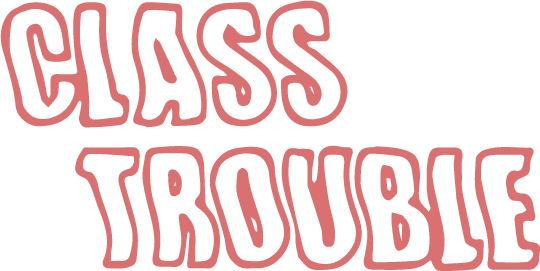August 24th, 2019
“Capitalism can no more be 'persuaded' to limit growth than a human being can be 'persuaded' to stop breathing. Attempts to 'green' capitalism, to make it 'ecological', are doomed by the very nature of the system as a system of endless growth." ― Murray Bookchin
We cannot talk about sustainability without also talking about access, labor, and capital. And while we recognize it’s not easy to balance so many different forms of access and need ― financial, physical, racial, environmental ― for ourselves, for people we want to support, for workers, and for the global ecosystem, we often find that these discussions focus in on one or two points of contention but rarely center indigenous perspectives, the access needs of individuals or groups trying to claw out a livable life for themselves, or the structural and destructive nature of capitalism.
Capitalism turns everything into an unsustainable industry because it can’t survive unless it constantly expands. Capitalist businesses need to grow quickly and indefinitely or be out-paced by their competitors and die, so they resort to extreme forms of extraction in order to survive. Food, housing, clothing, medicine, education, transportation, if there is a human need or desire, capitalism will find a way to exploit it ― and the requirement for unlimited growth and industrialization of human needs is incompatible with finite resources.
No amount of “green,” “organic,” or “ethical” consumption will defeat racial fascist capitalism either because every example of consumer activism fails to identify capitalism as the problem. Instead, it shifts the conversation around sustainability to a matter of consumer choice. Each time we are duped into moving capitalism’s problems around instead of resolving them ― instead of recognizing capitalist ideology itself must be unlearned, and that we will have to take back the land and resources the capitalist class hoarded and manipulated to accumulate wealth.
Often we hear “Well if people would stop this or that, then the rainforest wouldn’t be burning.” As our anti-fascist, indigenous comrades point out, just because people eat less meat or drink less bottled water doesn’t mean capitalists and fascists are going to give native peoples their land back ― or respect them. Capitalists will simply use the land in some other way to generate profit, either by stripping it for timber, developing agribusiness on it, building property on it, drilling into it, or simply holding it to create scarcity. They will never give it back ― and they will never stop trying to take more.
Capitalism also relies on the maintenance of the status quo. By tying our lives to wage-labor, capitalism limits our options, forces us to live in contradiction, punishes our attempts at self-sufficiency, and makes us reliant on consumption to live. Whether through inhibiting education, increasing the cost of purchasing nutritious food, dictating the use of land that was stolen from indigenous peoples, or depleting our time to cook a nutritious meal after a long day of wage labor, we are all forced to compete against each other through the artificial scarcity created by capitalism.
Through alienation, capitalism also disappears the labor that goes into production and the brutality towards workers, land, and animals. Global resources and ecosystems have been disrupted to produce and sell cash crops, clothing, water, housing, etc. There is absolutely a history of violence behind most of the things in our homes because all things are created by labor, so, at best, everything we purchase has been created through stolen wages. At some level, we are ALL coerced into unethical consumption and production in order to survive.
Climate change, and the environmental catastrophes occuring around the globe, weren’t caused by ― and won’t be fixed by ending ― single issues like meat consumption. We are here as a result of centuries of violently imposed racial capitalism, imperialism, slavery, and indigenous genocide. It’s the outcome of reckless capitalist resource extraction to create goods for consumers who are forced out of their native lands only to spend the majority of their time working for a wage as employees of the capitalist class.
Imagine trying to stop a river with a teaspoon. That’s what we are doing when we try to solve the structural violence and unsustainability of capitalism with individual lifestyle changes. The ultimate form of sustainability is ending capitalism as an ideology and breaking capitalist control over our lives and resources; it’s ending violence against indigenous people through total land repatriation and decolonization; it’s abolishing the wage-labor that makes us dependent on capitalists for survival and expropriating the wealth they’ve stolen from us. Let’s talk about that more.

